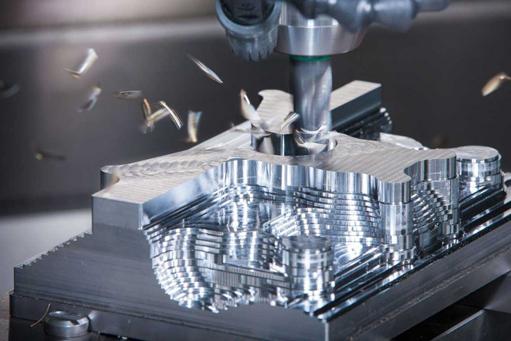CNC Milling Service
CNC milling is a computer-controlled machining process that removes material from a workpiece using rotary cutters. Unlike manual milling, CNC milling is automated, ensuring high precision and consistency in manufacturing.
Send Enquiry...
How Does CNC Milling Work?
CNC milling involves:
- Designing the part using CAD software.
- Converting the design into machine code.
- Executing the machining process with high-speed rotating tools.
This results in precise and complex components with minimal human intervention.
Types of CNC Milling Machines
There are different types of CNC milling machines, including:
- Vertical Milling Machines: Ideal for cutting at various angles.
- Horizontal Milling Machines: Used for heavier and larger workpieces.
- 5-Axis CNC Machines: Capable of complex and multi-sided machining.
Capabilities of CNC Milling Services
CNC milling services in India offer:
- Precision machining for intricate designs.
- Multi-axis operations for complex parts.
- Material versatility, including metals, plastics, and composites.
- High repeatability for large-scale production.
Comparison of CNC Milling Capabilities
| Feature | Traditional Milling | CNC Milling |
|---|---|---|
| Precision | Moderate | High |
| Automation | Low | Fully automated |
| Repeatability | Low | High |
| Speed | Moderate | High |
| Complexity Handling | Limited | Advanced |
Advantages of CNC Milling
- High Precision: Ensures exact dimensions with minimal errors.
- Cost-Effective: Reduces waste and optimizes material usage.
- Scalability: Suitable for both small batches and mass production.
- Efficiency: Reduces production time and increases output.
Applications of CNC Milling in Different Industries
CNC milling is used in various sectors, including:
- Automotive: Engine components, gears, and frames.
- Aerospace: Aircraft parts requiring high precision.
- Medical: Surgical instruments and prosthetics.
- Electronics: Printed circuit boards and enclosures.
- Construction: Customized architectural elements.
CNC Milling vs. Traditional Milling
Traditional milling requires manual operation, leading to variations in quality. CNC milling eliminates human error, increases production speed, and ensures uniformity in complex parts.
Future of CNC Milling in India
With increasing automation and smart manufacturing, CNC milling is set to grow. India’s focus on precision engineering and export-driven production will further boost CNC adoption in various industries.
Conclusion
CNC milling services in India are redefining manufacturing with high precision, efficiency, and versatility. From small-scale production to industrial applications, CNC milling is a must-have for modern manufacturing. Investing in CNC technology ensures a competitive edge in today’s market.
Frequently Asked Questions (FAQ)
1. What materials can be processed using CNC milling?
CNC milling can process metals (aluminum, steel, titanium), plastics (ABS, acrylic, polycarbonate), and composites.
2. How does CNC milling ensure accuracy?
CNC milling follows precise computer programming, ensuring repeatable accuracy within microns.
3. Is CNC milling cost-effective for small batch production?
Yes, CNC milling is cost-effective for small batches due to minimal waste and high precision.
4. What industries benefit most from CNC milling?
Industries like automotive, aerospace, medical, electronics, and construction benefit the most from CNC milling.
5. How long does CNC milling take?
The duration depends on material complexity, but CNC milling significantly reduces production time compared to manual methods.
